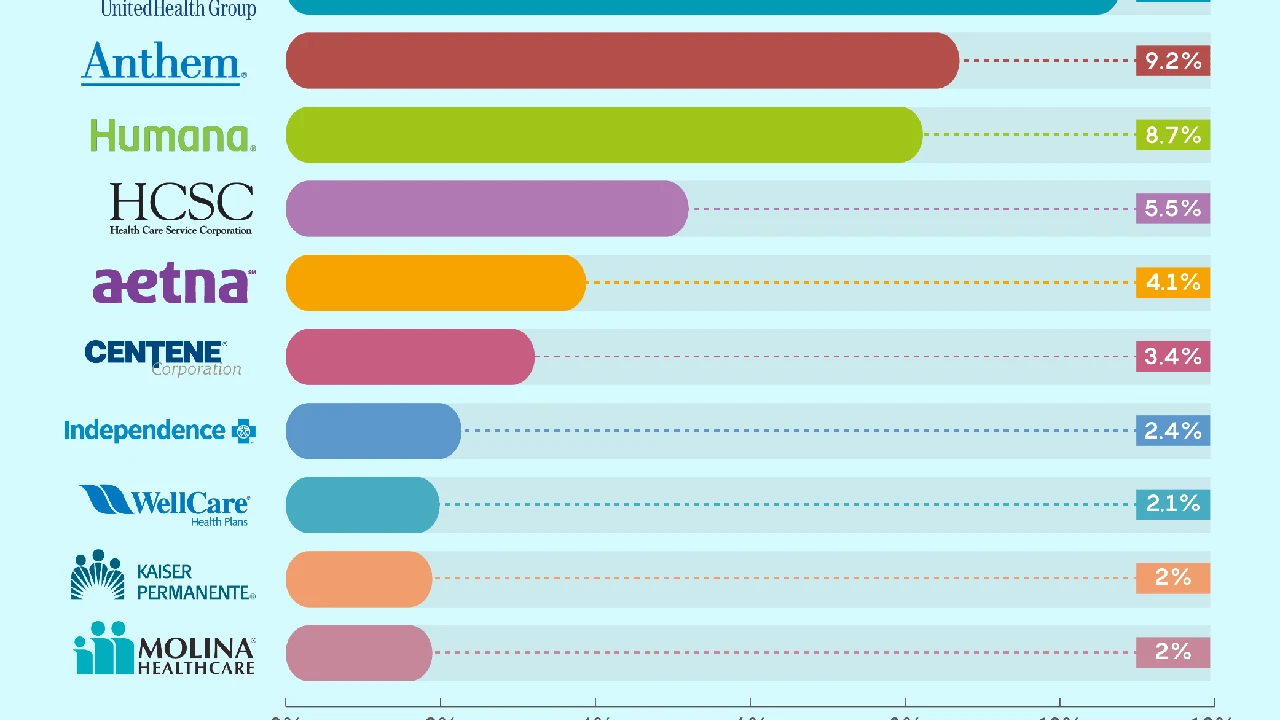7 Best Health Insurance Companies in the USA
Traveling with pre-existing medical conditions requires careful planning. Learn how travel insurance covers pre-existing conditions, policy options, and what limitations may apply. Ensure you have adequate coverage for your specific needs.

Understanding Pre-Existing Medical Conditions and Travel Insurance Coverage
Traveling the world is an exciting prospect, but if you have pre-existing medical conditions, planning becomes a bit more complex. The big question is: how does travel insurance handle these conditions? Let's break it down. A pre-existing medical condition is generally defined as any illness, injury, or medical condition for which you've received diagnosis, treatment, or medication within a specific period (often 60 to 180 days) before purchasing your travel insurance policy. This timeframe can vary depending on the insurer, so reading the fine print is crucial.
Many standard travel insurance policies have exclusions regarding pre-existing conditions. This means if you experience a flare-up or require medical attention related to that condition while traveling, your claim might be denied. However, don't despair! Several options exist to obtain coverage, which we will explore in detail.
Policy Options for Travelers with Pre-Existing Conditions Comprehensive Coverage Explained
You have several avenues to explore when seeking travel insurance that covers your pre-existing medical conditions. Here are the most common:
- Waivers for Pre-Existing Conditions: Some policies offer a waiver if you purchase the insurance within a certain timeframe of your initial trip deposit (usually 14-21 days). The waiver essentially allows the insurer to overlook your pre-existing condition, providing coverage as if it didn't exist. This is often the *best* option, but timing is everything.
- Policies that Cover Specifically Listed Conditions: Instead of a blanket exclusion, some insurers offer policies that specifically list the pre-existing conditions they *will* cover. You'll need to declare your conditions and ensure they're included in the list. This offers more peace of mind knowing exactly what's covered.
- Exclusion Riders: While less common, some policies might allow you to purchase a rider that removes the exclusion for your specific pre-existing condition. This often comes at an additional cost.
- Waiting Periods: Some policies have a waiting period (e.g., 60 days) before pre-existing conditions are covered. This means you need to purchase the policy well in advance of your trip.
- Specialized Travel Insurance Companies: There are travel insurance companies that specialize in covering travelers with pre-existing conditions. They often offer more flexible and comprehensive coverage options. We'll dive into some specific examples later.
Understanding Policy Limitations and Exclusions Careful Review is Key
Even with policies that offer some coverage for pre-existing conditions, it's *critical* to understand the limitations and exclusions. Here are some things to watch out for:
- Stability Clauses: Many policies require your pre-existing condition to be "stable" for a certain period before your trip (e.g., no changes in medication or treatment). If your condition becomes unstable shortly before your departure, it might void coverage.
- Maximum Benefit Limits: The policy might have a maximum amount it will pay out for medical expenses related to pre-existing conditions. Make sure this amount is sufficient, especially if you're traveling to a country with high healthcare costs.
- Activities Exclusions: Certain activities, like extreme sports, might be excluded, regardless of whether your medical condition is pre-existing.
- Emergency Medical Evacuation: Check if the policy covers emergency medical evacuation, which can be incredibly expensive if you need to be transported to a better-equipped medical facility.
- Pre-Trip Cancellation Coverage: Some policies offer coverage if you need to cancel your trip due to a flare-up of your pre-existing condition *before* you even leave.
Factors to Consider When Choosing a Travel Insurance Policy The Importance of Personalized Coverage
Selecting the right travel insurance policy for your needs involves careful consideration of several factors:
- Your Specific Medical Conditions: What are your pre-existing conditions? How likely are they to require medical attention while traveling? What types of treatment might you need?
- Your Destination: Where are you traveling? Are healthcare costs high in that country? What is the quality of medical care like?
- Trip Duration: How long will you be traveling? Longer trips generally require more comprehensive coverage.
- Activities Planned: What activities do you plan to participate in? Will you be engaging in any high-risk activities?
- Budget: How much are you willing to spend on travel insurance? Remember that cheaper policies often have more limitations.
- Deductible: What is the deductible (the amount you pay out-of-pocket before the insurance kicks in)? A higher deductible usually means a lower premium, but you'll need to be prepared to pay that amount if you need to make a claim.
- Policy Wording: Carefully read and understand the policy wording. Don't hesitate to contact the insurance company and ask questions if anything is unclear.
Recommended Travel Insurance Products for Pre-Existing Conditions Detailed Product Comparisons and Pricing
Now, let's get into some specific travel insurance products that are often recommended for travelers with pre-existing conditions. Keep in mind that prices can vary based on your age, destination, trip duration, and other factors. *Always* get a quote from the insurer directly before making a decision.
- World Nomads Explorer Plan: While generally targeted at adventurous travelers, the World Nomads Explorer Plan can sometimes offer coverage for pre-existing conditions, especially if you purchase the policy soon after making your initial trip deposit and your condition is stable. *Important:* You'll need to declare your pre-existing conditions during the quote process and answer their medical questionnaire.
- Pros: Good for adventurous activities, relatively affordable (depending on age and destination), easy to purchase online.
- Cons: May not cover all pre-existing conditions, requires medical questionnaire, stability clause applies.
- Typical Price: Varies widely, but expect to pay around $100-$300 for a two-week trip, depending on your age and destination.
- Best For: Active travelers with stable pre-existing conditions who are looking for a balance between coverage and affordability.
- Allianz Global Assistance: Allianz offers a range of travel insurance plans, some of which offer coverage for pre-existing conditions under certain circumstances. Their *AllTrips Premier* and *AllTrips Executive* plans often include pre-existing condition waivers if purchased within a specific timeframe of your initial trip deposit.
- Pros: Well-established company, variety of plans to choose from, potential for pre-existing condition waivers.
- Cons: Policy wording can be complex, claims process can be lengthy.
- Typical Price: AllTrips Premier and Executive plans can range from $200-$500 per year, depending on the level of coverage.
- Best For: Travelers who want comprehensive coverage and are willing to pay a premium for it.
- Travel Guard: Travel Guard offers several plans, including some that provide coverage for pre-existing conditions if purchased within a specific timeframe and the condition is stable. Their *Travel Guard Preferred* and *Travel Guard Deluxe* plans are worth exploring.
- Pros: Offers 24/7 assistance, good customer service reputation, potential for pre-existing condition waivers.
- Cons: Can be more expensive than other options, requires careful review of policy wording.
- Typical Price: Travel Guard Preferred and Deluxe plans can range from $150-$400 for a two-week trip, depending on your age and destination.
- Best For: Travelers who value customer service and are looking for a reliable and well-known insurance provider.
- Seven Corners RoundTrip Choice Plan: This plan is specifically designed to offer coverage for pre-existing conditions. They have a look-back period (the period before your policy purchase date that they examine for pre-existing conditions) which may work well for you. You'll need to answer a health questionnaire.
- Pros: Tailored for pre-existing conditions, transparent pricing, and good customer support.
- Cons: May be more expensive, depending on the specific pre-existing conditions and your overall health.
- Typical Price: Prices vary significantly depending on factors like age, destination, and the type of conditions, but it's safe to estimate between $250-$600 for a two-week trip.
- Best For: Travelers who want a plan specifically designed to address their pre-existing condition concerns.
- InsureMyTrip: This isn't an insurance *provider* but rather a comparison website. It allows you to compare quotes from multiple insurers side-by-side, making it easier to find the best coverage for your needs. You can filter by companies that offer waivers for pre-existing conditions.
- Pros: Saves time and effort by comparing multiple policies at once, easy to use, provides unbiased information.
- Cons: You'll still need to read the policy wording carefully, not a direct insurer.
- Typical Price: Free to use the comparison tool.
- Best For: Travelers who want to quickly compare different travel insurance options.
Using Travel Insurance for Different Scenarios Practical Examples
Let's look at some practical scenarios to illustrate how travel insurance can help when you have pre-existing conditions:
- Scenario 1: You have stable asthma and are planning a hiking trip in Colorado. You purchase a World Nomads Explorer Plan shortly after making your trip deposit. During the hike, you experience a severe asthma attack due to the altitude. Your travel insurance can cover the cost of emergency medical treatment, including oxygen therapy and medication.
- Scenario 2: You have diabetes and are traveling to Europe. You purchase an Allianz Global Assistance plan that includes a pre-existing condition waiver. Before your trip, you develop a severe infection that requires hospitalization, forcing you to cancel your trip. Your travel insurance can reimburse you for non-refundable trip expenses, such as flights and hotel bookings.
- Scenario 3: You have a heart condition and are going on a cruise. You purchase a Travel Guard plan that covers pre-existing conditions. While on the cruise, you experience chest pain and require emergency medical evacuation to a hospital on land. Your travel insurance can cover the cost of the evacuation, which can be tens of thousands of dollars.
Tips for Finding the Right Travel Insurance Policy Proactive Steps to Secure Coverage
Here are some actionable tips to increase your chances of finding the right travel insurance policy for your pre-existing conditions:
- Purchase Early: Buy your travel insurance policy as soon as possible after making your initial trip deposit. This gives you the best chance of qualifying for a pre-existing condition waiver.
- Be Honest: Disclose all your pre-existing conditions to the insurance company. Failing to do so could void your coverage.
- Gather Documentation: Have documentation from your doctor outlining your medical conditions, treatment plans, and stability.
- Compare Quotes: Get quotes from multiple insurance companies and compare their coverage, limitations, and exclusions.
- Read the Fine Print: Carefully review the policy wording and understand the terms and conditions.
- Contact the Insurer: Don't hesitate to contact the insurance company and ask questions if anything is unclear.
- Consider a Medical Clearance: If you have a complex medical condition, consider getting a medical clearance from your doctor before you travel. This can help demonstrate to the insurance company that you are fit to travel.
The Role of Your Doctor in Travel Planning Collaboration is Key
Your doctor plays a crucial role in your travel planning when you have pre-existing conditions. They can provide valuable advice and support, including:
- Assessing Your Fitness to Travel: Your doctor can assess your overall health and determine whether you are fit to travel to your chosen destination.
- Providing Medical Documentation: Your doctor can provide you with medical documentation outlining your conditions, treatment plans, and stability.
- Prescribing Necessary Medications: Your doctor can prescribe any necessary medications that you will need while traveling.
- Offering Travel Health Advice: Your doctor can provide you with travel health advice, such as vaccinations and preventative medications.
- Creating a Contingency Plan: Your doctor can help you create a contingency plan for managing your pre-existing conditions while traveling.
Frequently Asked Questions (FAQs) About Travel Insurance and Pre-Existing Conditions
Let's address some common questions about travel insurance and pre-existing conditions:
- Q: What if I don't disclose my pre-existing condition?
- A: Failing to disclose your pre-existing condition could void your coverage, meaning the insurance company could deny your claim if you require medical attention related to that condition while traveling.
- Q: What is a "stability clause"?
- A: A stability clause requires your pre-existing condition to be stable for a certain period before your trip (e.g., no changes in medication or treatment). If your condition becomes unstable shortly before your departure, it might void coverage.
- Q: What if I have a chronic condition that is always present?
- A: Even if your condition is chronic, you still need to disclose it to the insurance company. They will assess the risk and determine whether to offer coverage.
- Q: Can I get travel insurance if I am pregnant?
- A: Yes, you can usually get travel insurance while pregnant, but some policies may have exclusions for complications related to pregnancy.
- Q: What if I need to cancel my trip due to a pre-existing condition?
- A: Some policies offer coverage for trip cancellation due to a flare-up of your pre-existing condition before you even leave, but you'll need to purchase the policy with trip cancellation benefits and meet the eligibility requirements.
Traveling with pre-existing medical conditions requires extra preparation, but with the right travel insurance and careful planning, you can enjoy your trip with peace of mind. Remember to research your options, compare policies, and consult with your doctor to ensure you have adequate coverage for your specific needs. Happy travels!
:max_bytes(150000):strip_icc()/277019-baked-pork-chops-with-cream-of-mushroom-soup-DDMFS-beauty-4x3-BG-7505-5762b731cf30447d9cbbbbbf387beafa.jpg)






